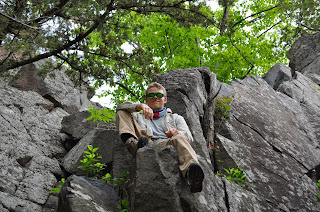The pictures included are extras from my trip, and are included as many indicate inspirations for my poems. I am now wrapping up my project, writing my last poems and editing my poetry.
These are the websites I used to reference and research poetry:
http://www.poets.org/
http://www.thepoetsgarret.com/list.html
Poetry At Ten Thousand Feet is intended to be my last poem. It is a sestina, considered to be one of the most difficult types of poetry to write. Based on the ends words (pine, fog, reaching, marble, sky, beginning) the thirty nine line, seven stanza poem is supposed to follow this pattern: ABCDEF FAEBDC CFDABE ECBFAD DEACFB BDFECA B-A D-C F-E (with the final three lines having end words within the phrase as well as at the end). This poem was inspired by the trip as a whole.
The Pine is a Monchielle Stanza, a type of poetry created by Norwegian poet Jim T. Henriksen. It has 4 stanzas, each with 5 lines, with each line having six syllables. The third and fifth lines must rhyme. This poem is inspired by my love for pine trees, especially white pine.

























